Third International Conference on Public Health in Africa (CPHIA) 2023: Charting Course to Breaking Health Barriers in Africa
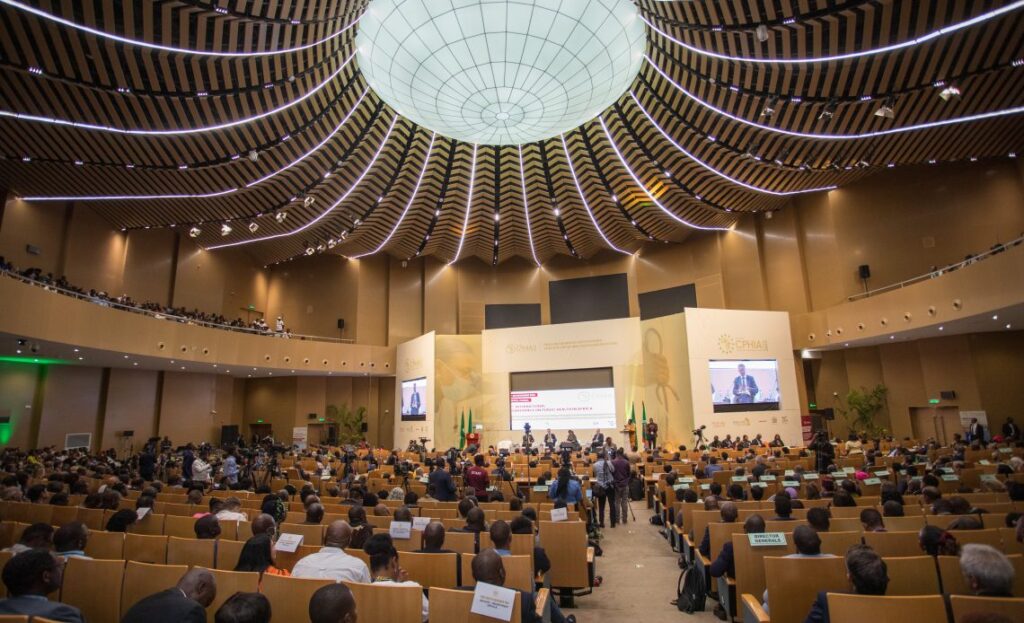
The Third International Conference on Public Health in Africa (CPHIA) 2023.
From November 27 to 30, 2023, over 5,100 delegates from 90 countries gathered in Lusaka, Zambia, for the third International Conference on Public Health in Africa under the theme Breaking Barriers: Repositioning Africa in the Global Health Architecture.
The four-day conference brought together researchers, policymakers, health ministers, and the like to share scientific findings, collaborate on research and implementation, and chart a secure future for the continent. The conference also provided a unique platform to reflect on lessons learned in health and science and align a way forward to create more resilient health systems.
President of the Republic of Zambia, Hakainde Hichilema, underscored the importance of collaboration and leadership at all levels of the health systems in Africa. “Public health requires us to work in unison. The thing about health is that there is no territorial ground. You can’t say, ‘This is my area and will do it my own way.’”
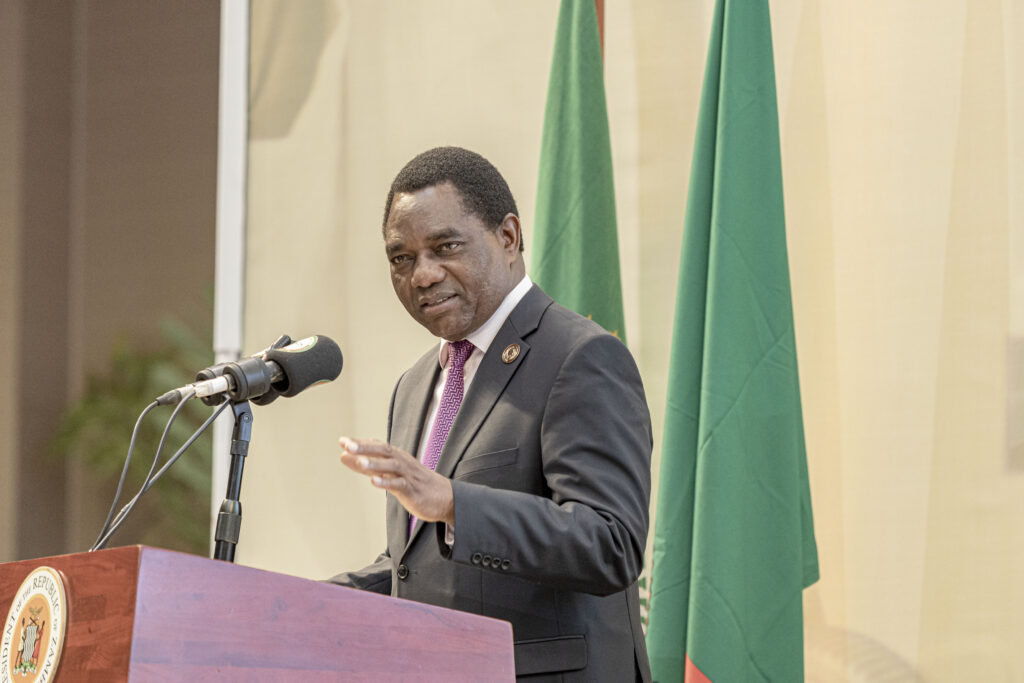
President of the Republic of Zambia, Hakainde Hichilema, delivered his official opening speech at the conference.
The President also shared that COVID-19 taught African countries the importance of working together. Leaders in Africa have since agreed to work together to ensure that the continent gets the best of vaccines and other medical supplies to avoid what happened during the height of the COVID-19 pandemic when the continent lagged in receiving the vaccines.
Delivering the opening remarks, the Director General of the Africa CDC, Dr. Jean Kaseya, outlined the Africa CDC’s vision to reshape the African healthcare landscape through an emphasis on the 5Cs: Community, Connectivity, Capacity, Collaboration, and Climate.
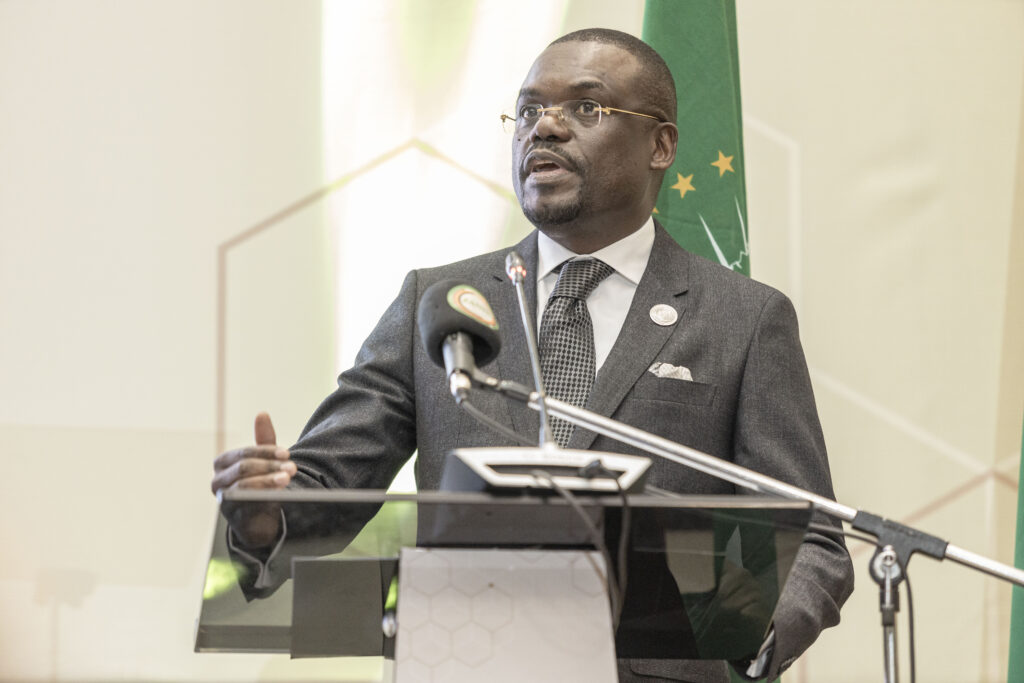
Dr. Jean Kaseya, Director General of the Africa CDC, delivered the opening remarks at the conference.
“No single government, country, business, organization, or non-governmental organization can effectively address the challenges we have as a continent. We need to work together to make meaningful and lasting change. Our Saving Lives and Livelihoods initiative with the Mastercard Foundation has shown the power of respectful and action-oriented partnerships rooted in collaboration, coordination, and system strengthening. The experience and learning from Phase 1 will enable us to move with greater speed and scale to deliver with accelerated impact to our member states,” he stated.
Also speaking at the opening ceremony, Chief Public Affairs and Communications Officer at the Mastercard Foundation, Julie Gichuru, said, “As the Mastercard Foundation, our work in health started at the beginning of the pandemic. We collaborated with the Africa CDC to make an impact through the Saving Lives and Livelihoods initiative during a very difficult time on the continent. We take great pride in our collective accomplishments, and our achievements support the idea that African institutions are strong and capable. Let’s keep bolstering these establishments.”
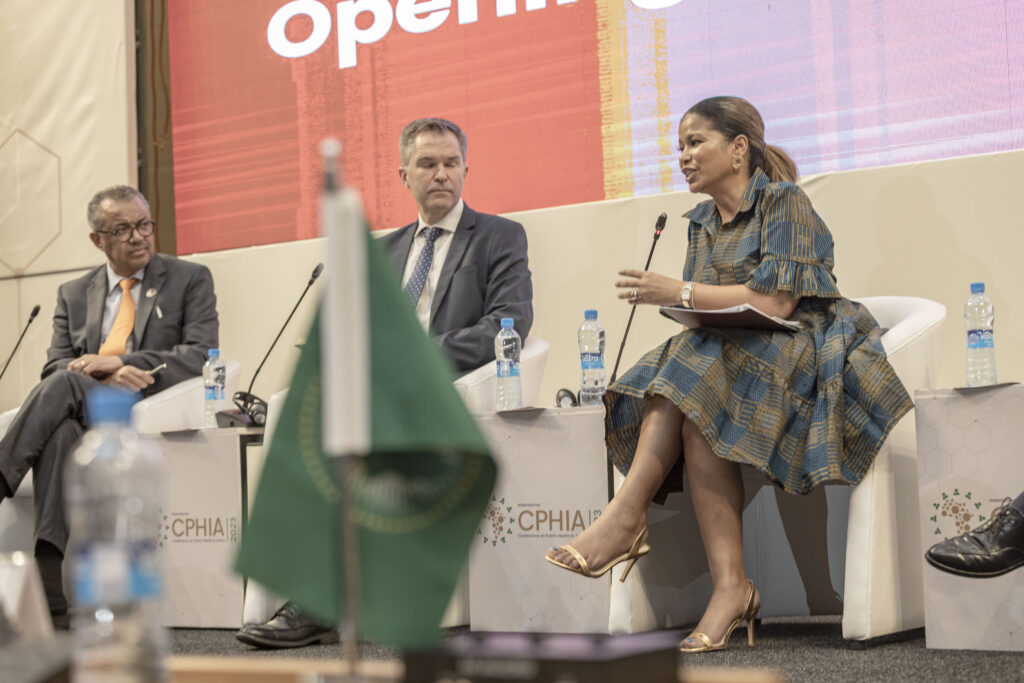
From left to right: Dr Tedros Adhanom Ghebreyesus, Director General of the World Health Organization; Dr. John-Arne Røttingen, Incoming CEO of Wellcome; and Julie Gichuru, Chief Public Affairs and Communications Officer at the Mastercard Foundation, during the opening ceremony.
Wariko Waita, Senior Director of Corporate Communications at the Mastercard Foundation, echoed the message of collaboration and partnerships during the session on Strengthening the Continental Risk Communication and Community Engagement and Social Behavioural Change and Architect: Preparing Communities for the Next Pandemic. She also emphasized the need to work with local partners as they are closest to communities and can help demystify certain primary healthcare and vaccination conceptions.
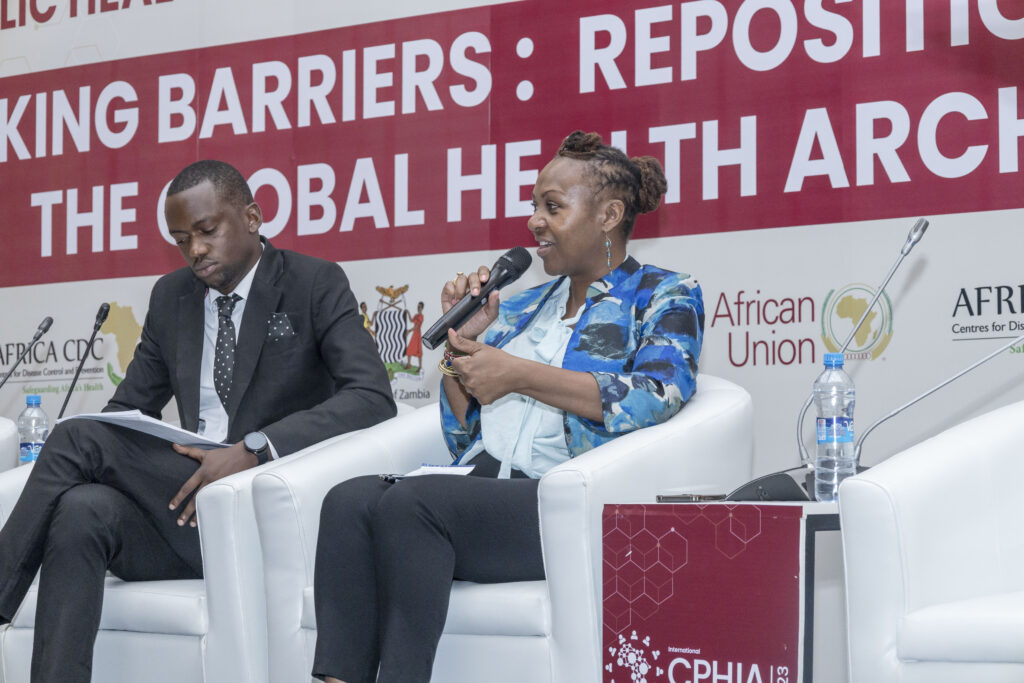
Redemptus Caesar Alphonce (left), Social Behaviour Change Campaign Lead, The Access Challenge and Wariko Waita (right), Senior Director of Corporate Communications at the Mastercard Foundation, speaking during a panel discussion on Developing RCCE Workforce for Efficient Pandemic Preparedness and Response.
The accomplishments of the Saving Lives and Livelihoods initiative were celebrated as Dr. Solomon Zewdu, Senior Executive Resident at the Mastercard Foundation, discussed the success of Africa’s response during the pandemic. Some of the lessons learned from the initiative’s first phase were collaboration, selecting partnerships with clear roles and respect, letting member states take the lead in identifying the needs of their communities, and soliciting advice from local implementors.
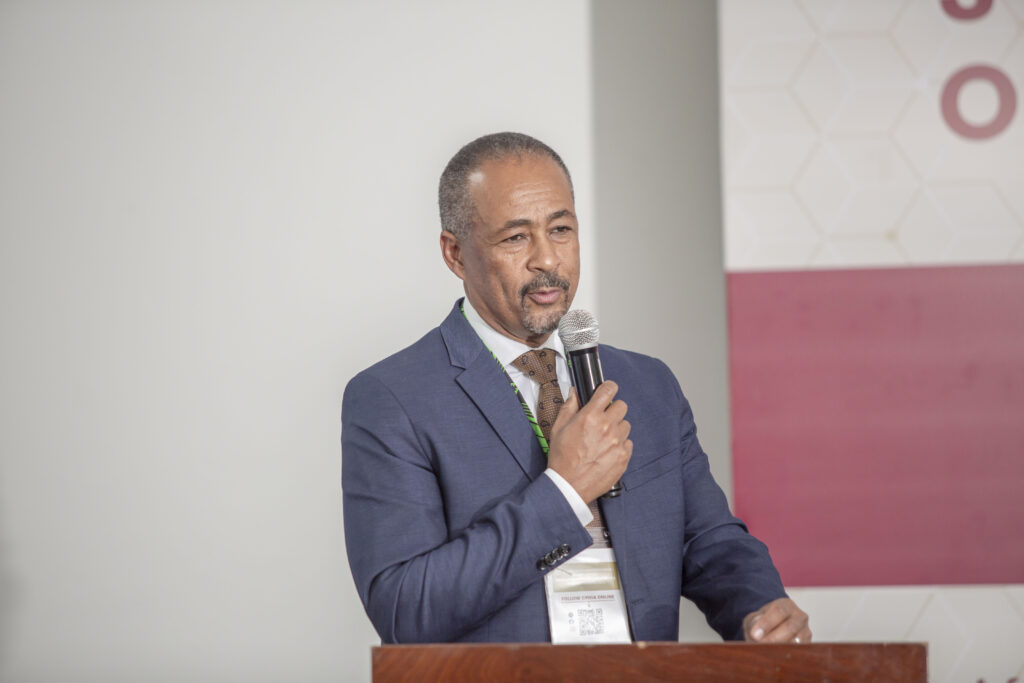
Dr. Solomon Zewdu, Senior Executive Resident at the Mastercard Foundation, gave the closing remarks at the Saving Lives and Livelihoods side event on Delivering Africa’s New Public Health Order.
During the conference, details of the second phase of the Saving Lives and Livelihoods initiative were revealed. The partnership will broaden its objectives and move with greater speed and scale to deliver with accelerated impact to member states.
Other significant discussions held during the conference emphasized the advancements in the field of digital health. To realize the aspirations of meeting the Universal Health Coverage targets in the years leading up to 2030, delegates were encouraged to embrace and capitalize on technology and innovation.
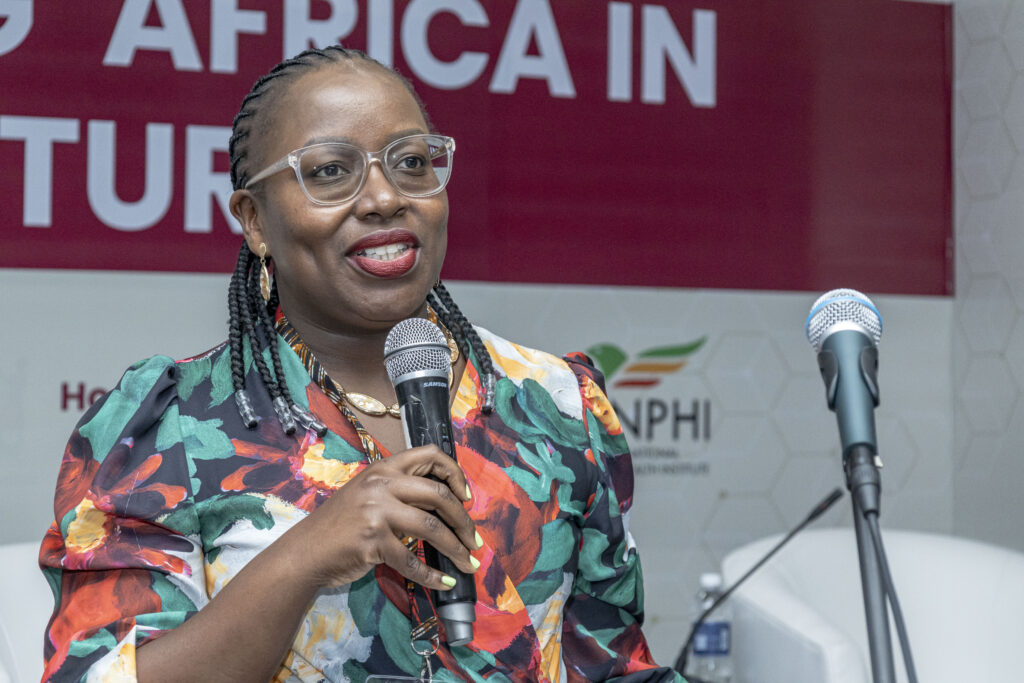
Nelly Ale, Head of Health Ecosystems at the Mastercard Foundation, speaking during the Priming AI for Africa’s Digital Health Revolution side event.
“Data collection and integration are gaps we need to address urgently. Data collected at various touchpoints in the health ecosystem needs to be integrated and made available on shared platforms for visibility and to facilitate prompt, data-driven decision-making,” said Nelly Ale, Head of Health Ecosystems at the Mastercard Foundation.


